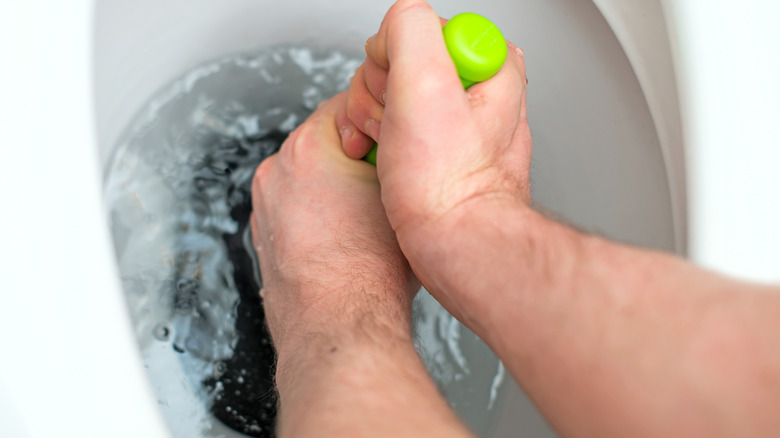If you end up with an abundance of extra gelatin, the notion of dealing with a messy garbage bag filled with gooey substance could tempt you to dispose of it by pouring it down the sink or flushing it down the toilet. Yet, despite how practical this may appear, it’s best not to flush gelatin—whether powder or gelled—in your plumbing system. Even though there are individuals who find amusement in clogging toilets with Jell-O as part of pranks, such actions often lead to costly and inconvenient consequences.
This common home item could potentially help you develop a knack for gardening.
, but flushing it away can lead to significant blockages.
Gelatin serves as a thickener in cooking, transforming liquids such as water into a thicker, semi-fluid consistency. Given this property, it’s not hard to understand why gelatin and toilets do not mix well. If you let gelatin powder or gelatin sheets sit in the toilet bowl for several minutes, the water begins to solidify. Flushing this now-gelled water could place significant stress on your pipes. Consequently, you might find yourself needing alternative measures.
Kitchen item to clear your clogged toilet in an emergency
.
Read more:
10 Everyday Objects That Belong Outside Your Recycling Bin
Gelatin Can Harm Your Pipes

To prevent problems with your plumbing system, refrain from discarding gelatin down sinks or showers as well as toilets. Since this material has the potential to grow within your pipes over time, leading to future obstructions, pouring it down drains apart from toilets could result in complications too. Avoid flushing items such as gummy sweets, marshmallows, and medical gel caps which contain gelatin to maintain proper functioning of your toilet. Should persistent clogging occur despite these precautions being taken, consider that another underlying issue might be present.
indication that your bathroom requires a skilled plumbing technician
.
It’s entirely safe to discard gelatin products in the trash, so there’s no need to prepare them specially for disposal. Managing slimy, jiggly, completed gelatin can be challenging, and there’s a chance it might leak from your garbage bag, yet solutions do exist for these issues. If you often handle gelatin or similar thick fluids that shouldn’t go down the drain—like cooking oil—it’s wise to pour extra amounts into containers such as empty milk jugs or water bottles. This method allows you to repurpose items destined for the landfill efficiently, making proper discarding of gelatin straightforward.
Liked this article? Subscribe now for exclusive access to professional home tips, step-by-step DIY guides, and creative design ideas from the
House Digest newsletter
!
Read the
Original Article from House Digest
.


